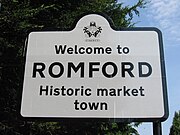
Trustee is a legal term which, in its broadest sense, is a synonym for anyone in a position of trust and so can refer to any individual who holds property, authority, or a position of trust or responsibility for the benefit of another. A trustee can also be a person who is allowed to do certain tasks but not able to gain income. Although in the strictest sense of the term a trustee is the holder of property on behalf of a beneficiary, the more expansive sense encompasses persons who serve, for example, on the board of trustees of an institution that operates for a charity, for the benefit of the general public, or a person in the local government.

A fiduciary is a person who holds a legal or ethical relationship of trust with one or more other parties. Typically, a fiduciary prudently takes care of money or other assets for another person. One party, for example, a corporate trust company or the trust department of a bank, acts in a fiduciary capacity to another party, who, for example, has entrusted funds to the fiduciary for safekeeping or investment. Likewise, financial advisers, financial planners, and asset managers, including managers of pension plans, endowments, and other tax-exempt assets, are considered fiduciaries under applicable statutes and laws. In a fiduciary relationship, one person, in a position of vulnerability, justifiably vests confidence, good faith, reliance, and trust in another whose aid, advice, or protection is sought in some matter. In such a relation, good conscience requires the fiduciary to act at all times for the sole benefit and interest of the one who trusts.
A fiduciary is someone who has undertaken to act for and on behalf of another in a particular matter in circumstances which give rise to a relationship of trust and confidence.

The duty of loyalty is often called the cardinal principal of fiduciary relationships, but is particularly strict in the law of trusts. In that context, the term refers to a trustee's duty to administer the trust solely in the interest of the beneficiaries, and following the terms of the trust. It generally prohibits a trustee from engaging in transactions that might involve self-dealing or even an appearance of conflict of interest. Furthermore, it requires a fiduciary to deal with transparency regarding material facts known to them in interactions with beneficiaries.

Regal (Hastings) Ltd v Gulliver [1942] 1 All ER 37 is a leading case in UK company law regarding the rule against directors and officers from taking personal advantage of a corporate opportunity in violation of their duty of loyalty to the company. The Court held that a director is in breach of his duties if he takes advantage of an opportunity that the corporation would otherwise be interested in but was unable to take advantage. However the breach could have been resolved by ratification by the shareholders, which those involved neglected to do.

English trust law concerns the protection of assets, usually when they are held by one party for another's benefit. Trusts were a creation of the English law of property and obligations, and share a subsequent history with countries across the Commonwealth and the United States. Trusts developed when claimants in property disputes were dissatisfied with the common law courts and petitioned the King for a just and equitable result. On the King's behalf, the Lord Chancellor developed a parallel justice system in the Court of Chancery, commonly referred as equity. Historically, trusts have mostly been used where people have left money in a will, or created family settlements, charities, or some types of business venture. After the Judicature Act 1873, England's courts of equity and common law were merged, and equitable principles took precedence. Today, trusts play an important role in financial investment, especially in unit trusts and in pension trusts. Although people are generally free to set the terms of trusts in any way they like, there is a growing body of legislation to protect beneficiaries or regulate the trust relationship, including the Trustee Act 1925, Trustee Investments Act 1961, Recognition of Trusts Act 1987, Financial Services and Markets Act 2000, Trustee Act 2000, Pensions Act 1995, Pensions Act 2004 and Charities Act 2011.

Guth v. Loft Inc, 5 A.2d 503, 23 Del. Ch. 255 is a Delaware corporation law case, important for United States corporate law, on corporate opportunities and the duty of loyalty. It deviated from the year 1726 rule laid down in Keech v Sandford that a fiduciary should leave open no possibility of conflict of interest between his private dealings and the job he is entrusted to do.

Industrial Development Consultants Ltd v Cooley [1972] 1 WLR 443 is a UK company law case on the corporate opportunities doctrine, and the duty of loyalty from the law of trusts.

Boardman v Phipps [1966] UKHL 2 is a landmark English trusts law case concerning the duty of loyalty and the duty to avoid conflicts of interest.

Foster Bryant Surveying Ltd v Bryant[2007] EWCA Civ 200 is a 2007 UK company law case, concerning the fiduciary duty of directors to avoid conflicts of interest. The timing of the case followed some considerable unrest in the courts about the strictness of the law relating to taking corporate opportunities.
Directors' duties are a series of statutory, common law and equitable obligations owed primarily by members of the board of directors to the corporation that employs them. It is a central part of corporate law and corporate governance. Directors' duties are analogous to duties owed by trustees to beneficiaries, and by agents to principals.

Aberdeen Railway Co v Blaikie Brothers (1854) 1 Paterson 394 is a UK company law case. It concerns the fiduciary duty of loyalty, and in particular, the duty not to engage in self-dealing. It laid down a basic rule that if a director had an interest in a corporate transaction, the transaction is voidable at the company's will, and it is the duty of directors to avoid any possibility of a conflict of interest.

Attorney General v Blake[2000] UKHL 45, [2001] 1 AC 268 is a leading English contract law case on damages for breach of contract. It established that in some circumstances, where ordinary remedies are inadequate, restitutionary damages may be awarded.

O'Donnell v Shanahan[2009] EWCA Civ 751 is a UK company law case concerning the strict prohibition on any possibility of a conflict of interest between a company director's duty to promote her company's success and her own gain.

Bhullar v Bhullar[2003] EWCA Civ 424, 2 BCLC 241 is a leading UK company law case on the principle that directors must avoid any possibility of a conflict of interest, particular relating to corporate opportunities. It was not decided under, but is relevant to, section 175 of the Companies Act 2006.

Schmidt v Rosewood Trust Ltd[2003] UKPC 26 is a judicial decision concerning the information rights of a beneficiary under a discretionary trust. Although the judgment involved a question as to the law of the Isle of Man, the Privy Council's judgment in Schmidt v Rosewood was adopted into English law by Briggs J in Breakspear v Ackland[2008] EWHC 220 (Ch).
Holder v Holder [1968] Ch 353 is an English trusts law case concerning conflict of interest.
York Buildings Co v MacKenzie (1795) 3 ER 432 is an English trusts law case concerning the duty of a fiduciary to act in the beneficiaries' interests, without entering any conflict of interest.
Constructive trusts in English law are a form of trust created by the English law courts primarily where the defendant has dealt with property in an "unconscionable manner"—but also in other circumstances. The property is held in "constructive trust" for the harmed party, obliging the defendant to look after it. The main factors that lead to a constructive trust are unconscionable dealings with property, profits from unlawful acts, and unauthorised profits by a fiduciary. Where the owner of a property deals with it in a way that denies or impedes the rights of some other person over that property, the courts may order that owner to hold it in constructive trust. Where someone profits from unlawful acts, such as murder, fraud, or bribery, these profits may also be held in constructive trust. The most common of these is bribery, which requires that the person be in a fiduciary office. Certain offices, such as those of trustee and company director, are always fiduciary offices. Courts may recognise others where the circumstances demand it. Where someone in a fiduciary office makes profits from their duties without the authorisation of that office's beneficiaries, a constructive trust may be imposed on those profits; there is a defence where the beneficiaries have authorised such profits. The justification here is that a person in such an office must avoid conflicts of interest, and be held to account should he fail to do so.

The Attorney General for Hong Kong v Reid (UKPC)[1993] UKPC 2 was a New Zealand-originated trust law case heard and decided by the Judicial Committee of the Privy Council, where it was held that bribe money accepted by a person in a position of trust, can be traced into any property bought and is held on constructive trust for the beneficiary.

FHR European Ventures LLP v Cedar Capital Partners LLC[2014] UKSC 45 is a landmark decision of the United Kingdom Supreme Court which holds that a bribe or secret commission accepted by an agent is held on trust for his principal. In so ruling, the Court partially overruled Sinclair Investments (UK) Ltd v Versailles Trade Finance Ltd in favour of The Attorney General for Hong Kong v Reid (UKPC), a ruling from the Judicial Committee of the Privy Council on appeal from New Zealand.

















